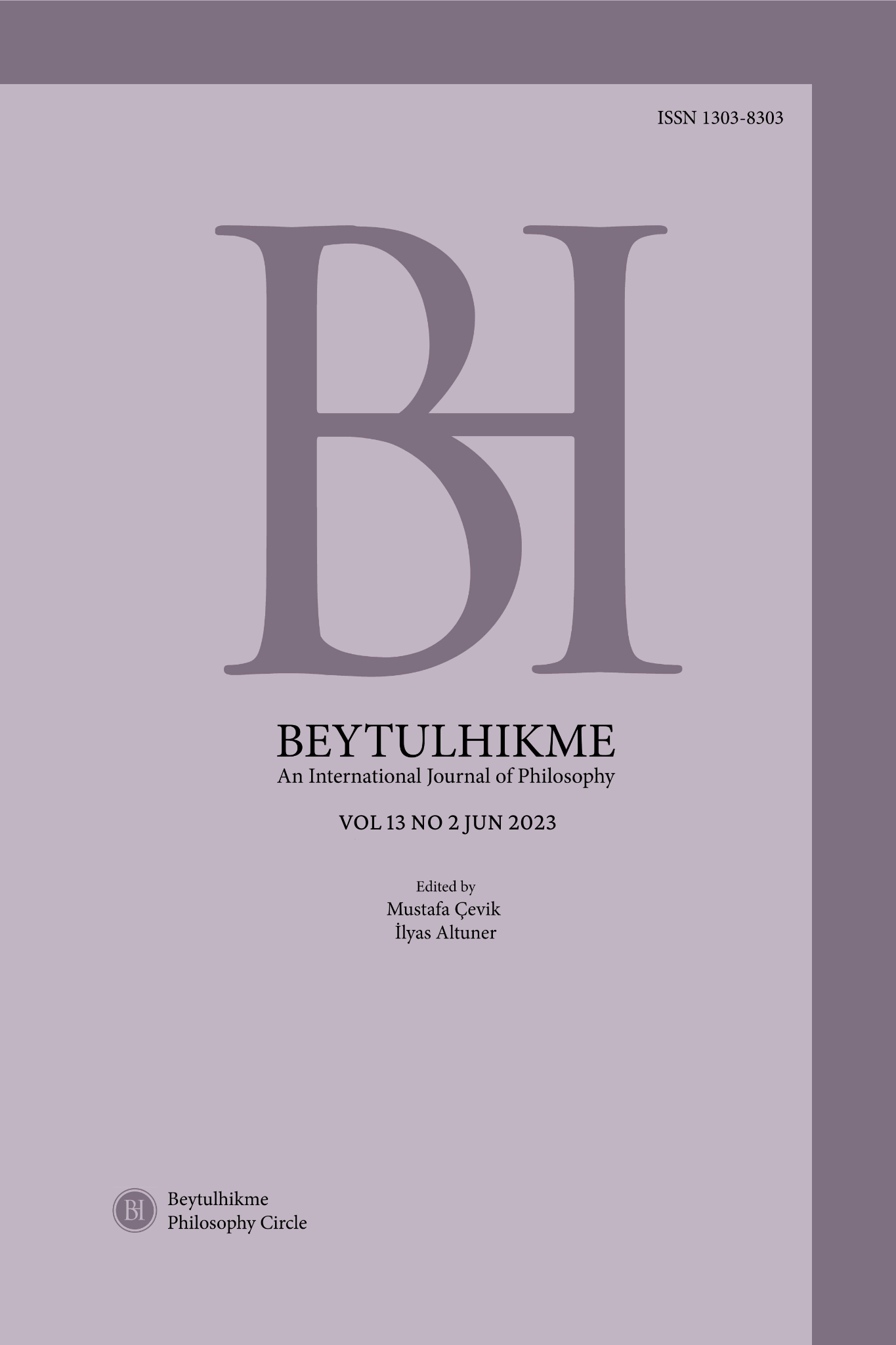İnsanın “Yeni” Arayışında Hafızasının İçeriklerine ve İnsanlık İdeali İddiasının Kapsayıcılığına Eleştirel Bir Bakış
Author :
Abstract
Nesnesini deneyimin yanında tarihsellikten de alan hafıza, insanın eylemlerini bir amaç doğrultusunda biçimlendiren ve ben bilincini oluşturan özel bir olanaktır. Bu açıdan sosyal, kültürel, bilimsel ve düşünsel alanda gerçekleşen değişimler, ahlaki bir varlık olduğu öne sürülen insanın yaşadığı yer ve başkası ile ilişkisini, aidiyetini kuran hafızasını da fazlası ile etkilemektedir. Nitekim mevcut gelişmelere yönelik bir eleştiri mahiyetinde, dönüştürülmeye çalışılan insanın, ontolojik bir zeminde kalacak şekilde bütünlüğünün ön plana çıkarılması ve ahlaki bir varlık olduğuna sürekli vurgu yapılması gerekmektedir. Bu bağlamda bir öneri olarak Sarıoğlu’nun, varlığın ontolojik temellerini dikkate alarak savunmaya çalıştığı ahlaki tutum, hem insanın hafızasına dair kurucu bir analizi içermekte hem de günümüzün şekillenişinde insanın yönelimine bir cevap olmaktadır. Dolayısıyla bu çalışmada Sarıoğlu’nun ontolojik-ahlaki zeminde eleştirisine konu olan insanın, özne (üst/ün/-insan) olarak kendi varlığına dair başlangıç arayışında unuttuğu ya da unutturmaya çalıştığı bütünlüklü yapısı, yine onun ahlaki bir içerik ile hem emanet alma, hem birlikte-olma, hem de aklın kullanımına dair değerlendirmeleri ele alınmaktadır.
Keywords
Abstract
Memory, which takes its object from history as well as experience, is a special possibility that shapes human actions in line with a purpose and forms self-consciousness. In this aspect, changes in the social, cultural, scientific and intellectual spheres affect the memory of the human being, who is claimed to be a moral being, which establishes his/her relationship and belonging to the place where he/she lives and to others. As a matter of fact, as a criticism of the current developments, it is necessary to emphasize the integrity of the human being, who is being transformed, in a way to remain on an ontological ground and to constantly emphasize that he is a moral being. In this context, as a suggestion, Sarıoğlu's moral attitude, which he tries to defend by taking into account the ontological foundations of existence, both includes a constitutive analysis of human memory and is an answer to the orientation of man in the shaping of today. Therefore, in this study, the holistic structure of the human being, which is the subject of Sarıoğlu's criticism on the ontological-moral ground, which he forgets or tries to make him forget in his search for the beginning of his own existence as a subject (super/ior/human), and his evaluations on both entrustment, being-together, and the use of reason with a moral content are discussed.





